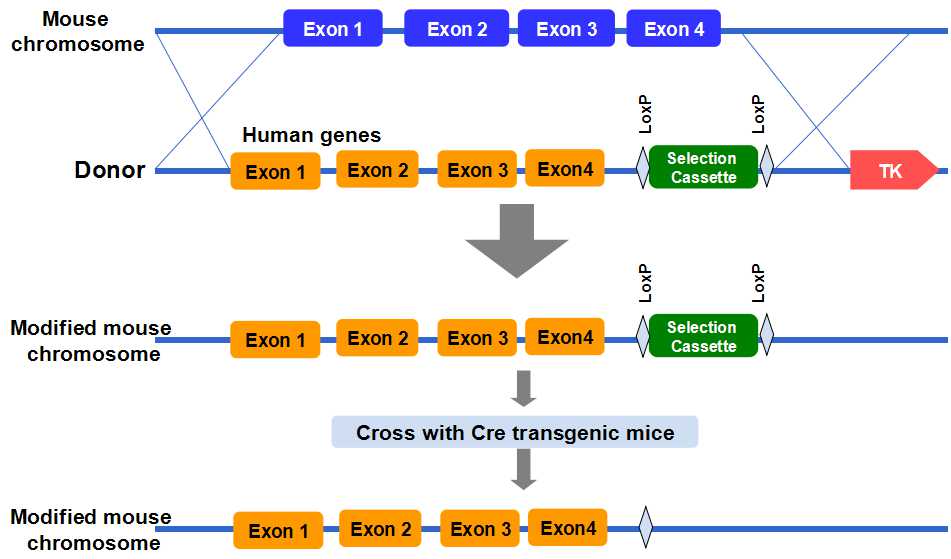Does US Government Funding Support Transgender Mouse Research?

Table of Contents
Understanding Sex Reversal in Mice Research
The scientific community utilizes various animal models to unravel complex biological mechanisms, and mice are particularly valuable due to their genetic similarity to humans and ease of manipulation in laboratory settings. Research involving sex reversal in mice isn't about creating "transgender mice" in the human sense of the term. Instead, it focuses on understanding the intricate biological processes that determine sex differentiation. This research is crucial for advancing our knowledge of:
- The importance of mouse models in biomedical research: Mice share a significant portion of their genetic makeup with humans, making them excellent models for studying human diseases and biological processes. Their short lifespans and ease of genetic manipulation further enhance their utility.
- Studying sex-linked diseases: Sex-reversed mice allow researchers to investigate the role of sex chromosomes and hormones in the development and progression of diseases that disproportionately affect one sex.
- Investigating the effects of hormones on development: These studies use sex-reversed mice to isolate the impact of specific hormones on various developmental pathways, providing insights into both normal and abnormal development.
- Clarifying the difference between sex determination and gender identity: It’s crucial to distinguish between biological sex (determined by chromosomes and hormones) and gender identity (a person's internal sense of being male, female, both, or neither). Research on sex-reversed mice focuses solely on the biological aspects.
Funding Sources for Mouse Research
The primary sources of funding for biomedical research in the US, including research utilizing mouse models, are diverse. A significant portion comes from:
- National Institutes of Health (NIH) grants: The NIH is the largest public funder of biomedical research in the world. Many grants support research on sex differentiation and related topics using mouse models. You can explore these grants through the NIH RePORTER database ([insert link to NIH RePORTER database here]).
- Other federal agencies: Agencies like the National Science Foundation (NSF) also contribute to basic research that may include studies utilizing sex-reversed mice.
- Private funding sources: Foundations and private companies also play a role in funding research, potentially including studies on sex differentiation and development in mice.
While pinpointing the exact amount of funding specifically allocated to "transgender mouse research" is difficult due to the lack of a specific, universally accepted category, searching grant databases with relevant keywords (like "sex reversal," "gonadal development," "hormonal effects on sex differentiation") reveals substantial funding for this type of research.
Interpreting Research Findings on Sex-Reversed Mice
It’s essential to acknowledge the limitations and ethical considerations when interpreting research findings from animal models. While sex-reversed mice can offer valuable insights into the biological mechanisms of sex determination, it's crucial to understand that:
- Mouse models cannot directly inform the human experience of being transgender: The biological processes in mice, while informative, are not perfectly analogous to the complex interplay of biological, psychological, and social factors that shape the human experience of gender identity.
- Ethical considerations in animal research are paramount: All animal research must adhere to strict ethical guidelines to minimize animal suffering and ensure responsible conduct. The use of sex-reversed mice necessitates rigorous oversight and adherence to these guidelines.
- Translating basic research findings into clinical applications requires caution: Results from mouse models must be interpreted cautiously and further validated through human studies before any clinical applications can be considered.
Conclusion
In summary, while US government funding supports research using sex-reversed mice models to understand biological processes related to sex development, this research is distinct from research directly related to the human experience of being transgender. There is no direct funding for creating "transgender mice." The research focuses on fundamental biological mechanisms, offering valuable insights into sex differentiation but not directly translating to the complexities of human gender identity. We encourage readers to engage further with this topic by researching funding sources for specific areas of biomedical research, such as research on sex-reversed mice models, and exploring reputable scientific journals for information on sex differentiation studies, and government funding for sex differentiation research. Understanding the nuances of this research is critical for informed discussions about science, funding, and the human experience.

Featured Posts
-
 Overcoming Adversity From Wolves To Europes Best
May 10, 2025
Overcoming Adversity From Wolves To Europes Best
May 10, 2025 -
 Metas Whats App Spyware Verdict A Costly Setback
May 10, 2025
Metas Whats App Spyware Verdict A Costly Setback
May 10, 2025 -
 Us Ipo Filing Omada Health And The Andreessen Horowitz Impact
May 10, 2025
Us Ipo Filing Omada Health And The Andreessen Horowitz Impact
May 10, 2025 -
 The Bangkok Post And The Fight For Transgender Equality In Thailand
May 10, 2025
The Bangkok Post And The Fight For Transgender Equality In Thailand
May 10, 2025 -
 14 Edmonton Area School Projects Fast Tracked By Minister
May 10, 2025
14 Edmonton Area School Projects Fast Tracked By Minister
May 10, 2025
